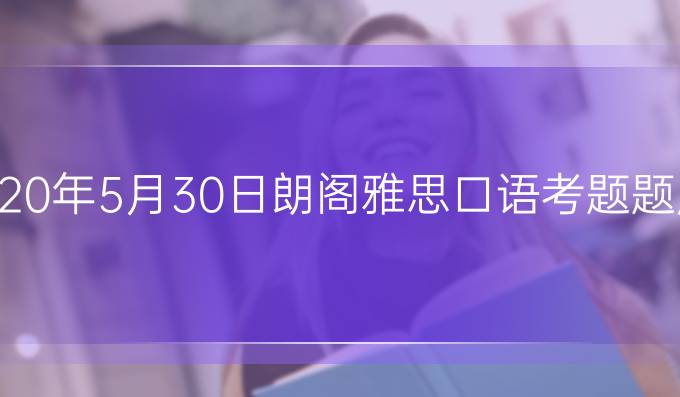Part 3

1. Describe a subject you used to dislike but now have interest in
1) Which one do you prefer? Learning many subjects at one time or learning one subject at one time?
Sample answer:
Well, I reckon that it depends on your goal and interest. If you want to be an expert in a specific field, it's better for you to learn one subject at a time. If you want to be a knowledgeable and well-informed person, you'll be better off studying a number of subjects at the same time. Personally speaking, I think learning many subjects at one time is better. But here I have a premise. Those subjects should have some kind of connections with each other. For example, it’s pretty hard for one to learn engineering, philosophy and music at the same time because they belong to distinct systems. It is very challenging to learn a couple of things which are totally different. My point is under the same category, one can learn as many subjects as possible. For example, a student can learn science, math and computer engineering at the same time. Learning only one subject may become tedious while learning many subjects is more inspiring. One can find out the similarities or summarize the common methods which are useful for the whole learning process.
2) Do you think learning many subjects is beneficial to your work?
Sample answer:
Absolutely. Presently I am an English teacher in a prestigious establishment. My job consists of understanding various needs of my students, preparing adequate and appropriate materials of different fields and helping my students do better in the final exam. For example, my students may major in computer engineering, mathematics, international trade, music or even Chinese. As a result, chances are good that I may come across new concepts and ideas from these distinct areas. In order to better understand and communicate with them, it's necessary for me to learn as many subjects as possible. For instance, economics, philosophy, arts, etc, you name it. So it is the case that the more subjects I learn, the better. What’s more, I think what matters most is the ability of learning nowadays. Interdisciplinary study allows me to learn by making connections between ideas and concepts across different disciplinary boundaries and is an effective way to deepen my learning experience, which enables me to apply the knowledge gained in one discipline to another different discipline.
3) What subjects are more practical to learn nowadays?
Sample answer:
Actually, there are a lot of practical subjects to learn nowadays. Firstly, I think food technology is the number one subject that should be taught in schools. No matter how fast society and technology changes in the coming decades, we’ll always need to eat the right food, know what foods are nutritious and food hygiene, especially in a world where things get more complicated concerning food sources, safety and genetically modified organism, etc. Secondly, I reckon the computer software-related courses are also practical. It’s because nowadays, our daily life and work can never be separated from mobile phones and computers. And if we can learn to use it wisely, it can really help us to save a lot of time and energy. There is actually tons of software that is useful and practical and deserves our attention. For example, when I write an article, the formatting part is highly required but very annoying because of different formats. In that case, if I know how to use the computer software to automatically build the format, it can not only be time-saving but also increase the total accuracy. Another practical subject is coding, which is an incredibly useful skill to have. Learning how to code at school will give students a head start in a global economy where coders are in high demand.
4) Do you think all teachers should have entertaining teaching styles?
Sample answer:
I don't think so. Just like every human being has his own personality, every teacher should have his own style of teaching. As traditional teaching styles evolve with the advent of differentiated instruction, more and more teachers are adjusting their approach depending on their students’ learning needs to make their classes more effective. It is necessary that teachers adjust their teaching styles but that doesn't mean the entertaining teaching style is the only choice. Apparently, it depends on the students. I guess entertaining teaching style is suitable for children because they are lively and energetic and need more interaction with the teacher. And maybe it’s not a right approach for older and more mature students. For instance, if a teacher is really bad at entertaining and he still entertains for the sake of it, things may totally go to the opposite. A serious university teacher may have authority teaching style which is teacher-centered and frequently entails lengthy lecture sessions or one-way presentations. This style is acceptable for certain higher-education disciplines and auditorium settings with large groups of students who are expected to take notes or absorb information. For example, this kind of pure lecture style is most suitable for teaching subjects like history, which necessitates memorization of key facts, dates, names, etc. So I don't think all teachers should have entertaining teaching styles.
2. Describe a person you wanted to be similar with
1) What kinds of famous people do children like?
Sample answer:
Well, in general, most children fancy stars who act as heroes in movies since most children have this idea of saving the world from its enemies. For example, Spiderman or Superman What’s more, children may also like comedians as they could be so funny and make children laugh all the time.
2) What good qualities do famous people have?
Sample answer:
Normally, I guess most successful and popular people share certain great qualities. For example, they’re all studious and dedicated to success. Besides, being a good team player is also thought to be one of the main qualities of them in the modern world. For example, I have watched a documentary about Jackie Chan and I was stunned by the price he paid to become successful. He literally tortured his body to make better quality films.
3) Do you think advertisements aimed at children should be endorsed by famous people?
Sample answer:
Well, this is a tough one. I am not an expert on this but I think it depends on what type of advertisements we are talking about. There are certain ads of some excellent products such electronic dictionaries which can help children improve their studies, or some educational toys which are beneficial for children’s development of cognitive function. However, celebrity endorsement is not appropriate when it comes to online gaming ads which might mislead children to play games instead of focusing on their studies at school.
3. Describe a school you went to in your childhood.
1) What’s the difference between the present and the past teachers?
Sample answer:
The present teachers differ from their past counterparts on the basis of several aspects. Firstly, the qualification of teachers is far higher than before because of the increasing of general education offered to the citizens as a whole. For example, in China, people with a bachelor degree could be appointed to teach students in secondary school decades ago. However, it turns out to be very different nowadays. The normal threshold is master degree for graduates teaching in secondary school. Secondly, the present teachers are equipped with more skills, especially, the skills in using teaching technology. Owing to the technical advancements, such as mass media, is applied in teaching lessons, the teaching method is more diverse in drawing students’ focus and interpreting some deep knowledge. Accordingly, ability to use certain equipment is necessary for the present teachers. Thirdly, apart from the traditional academic knowledge delivered in the class, the present teachers also lay great emphasis on the cultivation of students’ innovation and creativity, so they shoulder more duty in the current teaching process.
2) What’s the difference between being taught by teachers and being taught by AI?
Sample answer:
Fundamental differences exist between teachers and advanced technology, particularly in AI. Specifically, students taught by teachers can be effectively reminded and supervised by teachers when being distracted. In this case, students are more likely to concentrate on their learning. Besides, study with teachers allows students to promote their communication skills and critical thinking, thanks to the face-to-face teaching activities and free exchange of ideas. In addition, teachers are capable to adjust their teaching strategies and relevant knowledge according to the level of students in their class. For example, they can shorten the time for exercise when students have already mastered certain knowledge and make fewer mistakes. By contrast, AI, as a novel means in teaching, seems to be more intriguing to students, especially those with younger age, thus making students to be positively devoted in study. What’s more, in comparison to teachers who may give some incorrect information in some cases, AI provides nearly standardized procedure and accurate answers. Additionally, more diverse information is accessible to students by using AI, since the capacity for AI is without limit and almost incomparable.
.png)











